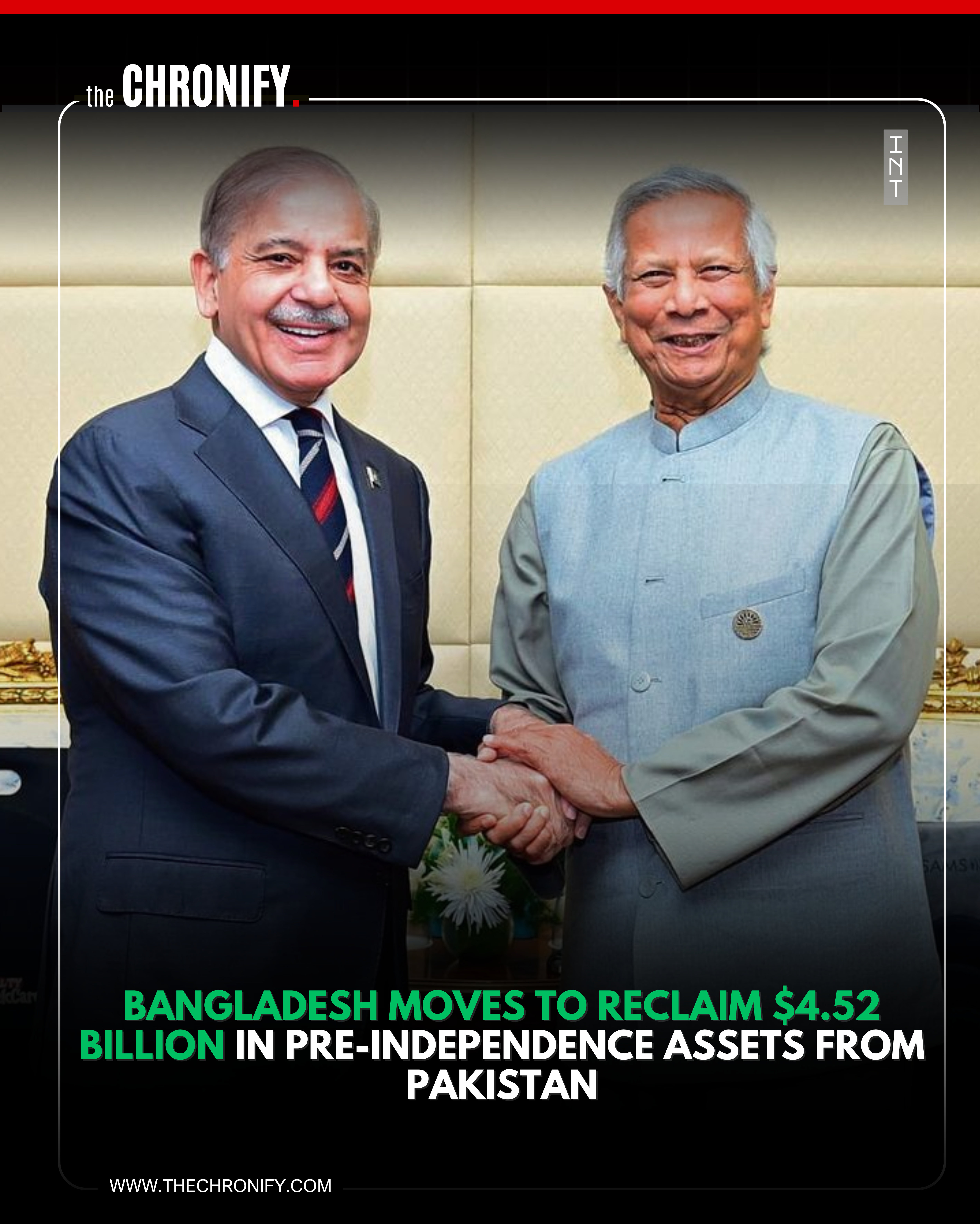Bangladesh to Demand $4.52 Billion in Assets and Aid Diverted by Pakistan Post-1971
In a major diplomatic move, Bangladesh is preparing to formally raise its longstanding claim of $4.52 billion against Pakistan—comprising its rightful share of undivided Pakistan’s pre-1971 assets. This sum includes misappropriated foreign aid, unreturned provident funds of civil servants, and unreleased savings instruments.
The issue will be brought to the table during the upcoming foreign secretary-level talks set for April 17 in Dhaka. This will be the first high-level bilateral meeting between Bangladesh and Pakistan in 15 years.
Misappropriated Cyclone Aid Among Core Grievances
One of the most notable parts of the claim concerns $200 million in foreign aid that was sent by the international community to then-East Pakistan in the wake of the catastrophic 1970 Bhola cyclone. According to Bangladeshi foreign ministry officials, this aid money was originally deposited with the Dhaka branch of the State Bank of Pakistan. However, during the Liberation War, it was covertly transferred to the bank’s Lahore branch and never returned.
This diverted humanitarian assistance, intended to aid cyclone victims, remains a particularly painful chapter in the nation’s history and will serve as a key point in the upcoming talks.
Financial Injustice After Independence
In addition to the aid issue, Bangladesh is seeking repayment for the provident fund contributions and savings instruments that were never returned to Bangladeshi government employees who had served in West Pakistan prior to 1971. Many of these officials returned to the newly independent Bangladesh to find that their accrued retirement savings had vanished.
According to foreign ministry records, a significant number of public servants and civil employees have yet to receive their entitlements more than five decades later.
Bangladesh’s Share of Pre-1971 Assets
Bangladesh’s overall claim is rooted in its fair share of the assets of undivided Pakistan. Based on population alone, Bangladesh was entitled to 56% of those assets. When calculated on the basis of foreign exchange earnings, that figure stands at 54%. By any reasonable metric, Bangladeshi officials argue, the country is due at least 50%.
A report prepared by the Planning Commission shortly after independence on 16 December 1971 revealed that Tk90 lakh in provident funds had been held back from East Pakistani civil servants. Further documentation shows that Tk1.57 crore held in Rupali Bank’s Karachi branch was never returned either. Instead, Pakistan converted that money into equity shares and offered no dividend or return—effectively blocking repatriation of the funds.
Bangladesh has made multiple attempts over the years to recover this money through the sale of those shares, but none have succeeded.
Bangladesh Took on Pakistan’s Debts
Ironically, while Pakistan failed to return owed funds, Bangladesh assumed liability for numerous financial instruments issued by the Pakistani government before independence. These include defence savings certificates, income tax bonds, and other obligations.
A report titled “Statement of Bangladesh Bank Claims Receivable from State Bank of Pakistan and Government of Pakistan” provides a breakdown of the demands. These include:
-
Rs59.63 crore owed by Pakistan’s banking department
-
Rs88 lakh as 50% of paid-up capital
-
Rs22.62 crore as 50% of statutory funds
-
Rs6.07 crore representing balances held outside Pakistan
-
Rs27.58 crore in other asset claims
Bangladesh is also asserting its right to recover Tk21.38 crore worth of debt securities issued by the central and provincial governments of pre-1971 Pakistan. This includes:
-
Tk14.07 crore in central government loans
-
Tk2.77 crore from East Pakistan government bonds
-
Tk1.15 crore from West Pakistan-issued securities
-
Tk2.46 crore tied to savings certificates from international trading units
-
Tk65 lakh linked to prize bonds
A Renewed Push for Historical Justice
The upcoming diplomatic meetings are expected to be pivotal, not just in financial terms but also as part of Bangladesh’s broader push for historical justice. In past meetings, Bangladesh has also demanded a formal apology from Pakistan for the 1971 genocide and the return of stranded Pakistanis.
On March 27, the foreign ministry formally requested additional documentation from the Bangladesh Bank and Finance Division to strengthen its case ahead of the talks. A copy of the request letter confirms the government’s serious intent to resolve the matter after years of inaction.
This renewed push, backed by solid evidence and decades of unfulfilled financial obligations, marks one of the strongest efforts by Dhaka to reclaim its due share of national assets lost in the aftermath of independence.
With the foreign secretary-level meeting only days away, Bangladesh is positioning itself to hold Pakistan accountable—not only for the financial wrongs of the past but for the recognition of justice long overdue.

